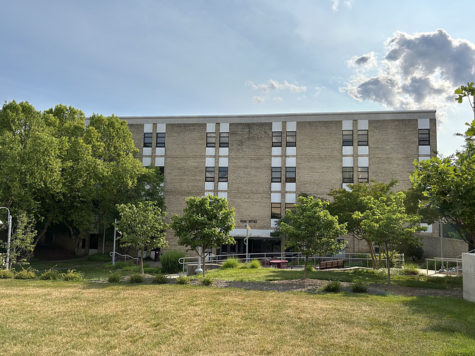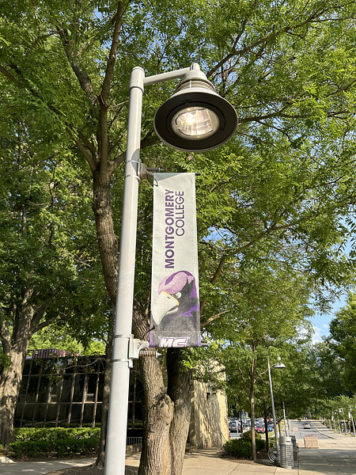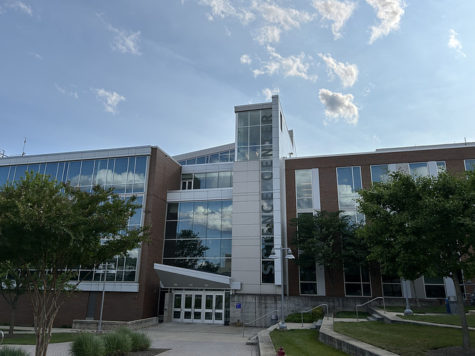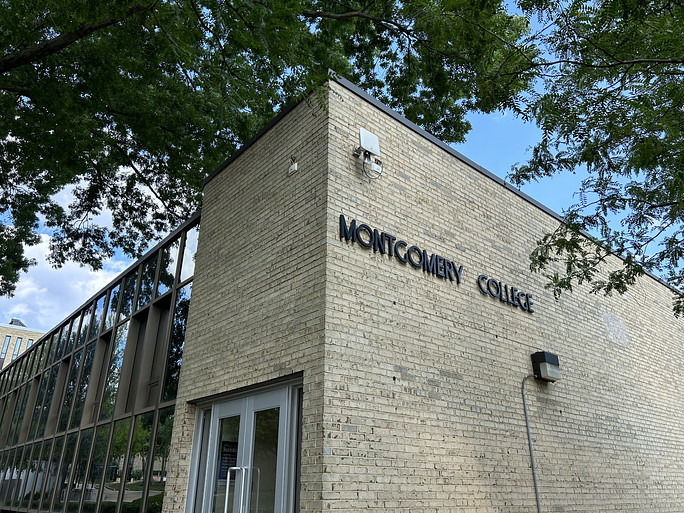Board of Trustees Approves “Refreshed” College Strategic Plan
Counseling and Advising Building, Rockville Campus
June 22, 2023
During the 2023 Spring Semester, the Montgomery College Board of Trustees approved a refreshed strategic plan for the College through 2028. The strategic plan – which is refreshed every five years – acts as “a guiding light that drives our work, decision making, and budget plans,” according to Chief Strategy Officer Stephen Cain.
Unusually, this year, college administration took the step of renewing the strategic plan in the middle of an existing planning cycle. Previously, former President DeRionne Pollard’s administration approved a plan intended to run through 2025.
However, in his inaugural address last Oct 2022, President Jermaine F. Williams called for an unprecedented refresh of the old plan. In a college-wide memo in Nov 2022 explaining his course of action, President Williams cited causes such as the pandemic, economic downturn, and a national social justice awakening across the country as reasons for the change. “The world has changed dramatically since MC 2025 was composed and adopted.” said Dr. Cain and Dr. Hamman.
This plan also forms in the backdrop of challenges for the College. Consistent with national community college enrollment, Montgomery College’s student population has fallen over 21% in the last five years according to the “Office of Institutional Research and Effectiveness” enrollment and analysis report.

The first goal of this new strategy is to improve MC’s connections with the College community – this includes putting MC on the pathway from Montgomery County Public Schools to state universities. Goal 1 in the strategic plan includes references to building ties with Montgomery County Public Schools and other state transfer institutions to effect this:
“Strengthen our collaboration with MCPS, the University System of Maryland (USM), and other regional educational institutions enhancing students’ academic journeys.”
One of the key metrics in the regional outreach strategy is the percentage of 6th grade MCPS students that have attended an MC outreach event.” MC’s efforts to bring in more students has even reached the middle school level. President Williams’ spearheading of this initiative has also been an effort to lead an institution that is better placed within its community.

Goal 2 of the College’s strategic plan embraces radical tolerance to “cultivate a sense of belonging at the College.” This includes embracing antiracist principles, an ideal championed by MC’s Office of Equity and Inclusion. As a result, DEI has begun offering a micro credentialing program to both MC students and employees to educate the community about how to effect antiracism. The antiracism badge came about as the College’s Board of Trustees adopted antiracism as an institutional goal in previous years.
Goal 3, intends to “enhance educational and organizational effectiveness” in College administration. This includes simplifying the student registration process and improving both student and employee retention.

Finally, Goal 4 was “increasing economic impact for students and community.” In coming years, this will mean embedded advisors in students’ academic programs, expanded internship and apprenticeship opportunities for MC students. Additionally, industry representatives and specialists will be brought in to inform students of current trends to best prepare them for the workforce. In the past, MC has hosted job fairs and career advising opportunities for students in the past and it is looking to do so for the future. In fact, in July, MC will be hosting the Montgomery County Community Job Fair in the gym at Rockville Campus in the gymnasium, not only for students, but also a wider array of Montgomery County residents.
In his college-wide memo on the new plan, President Williams highlighted the collaborative process in which it was created. A 40-member advisory committee consisting of students, staff, and faculty aided in drafting the document. Virtual and in-person events for both students and employees on each campus were held to gain input on the new plan, and an online form for comments and amendments was embedded on the plan’s online page before the Board approved it in April.












